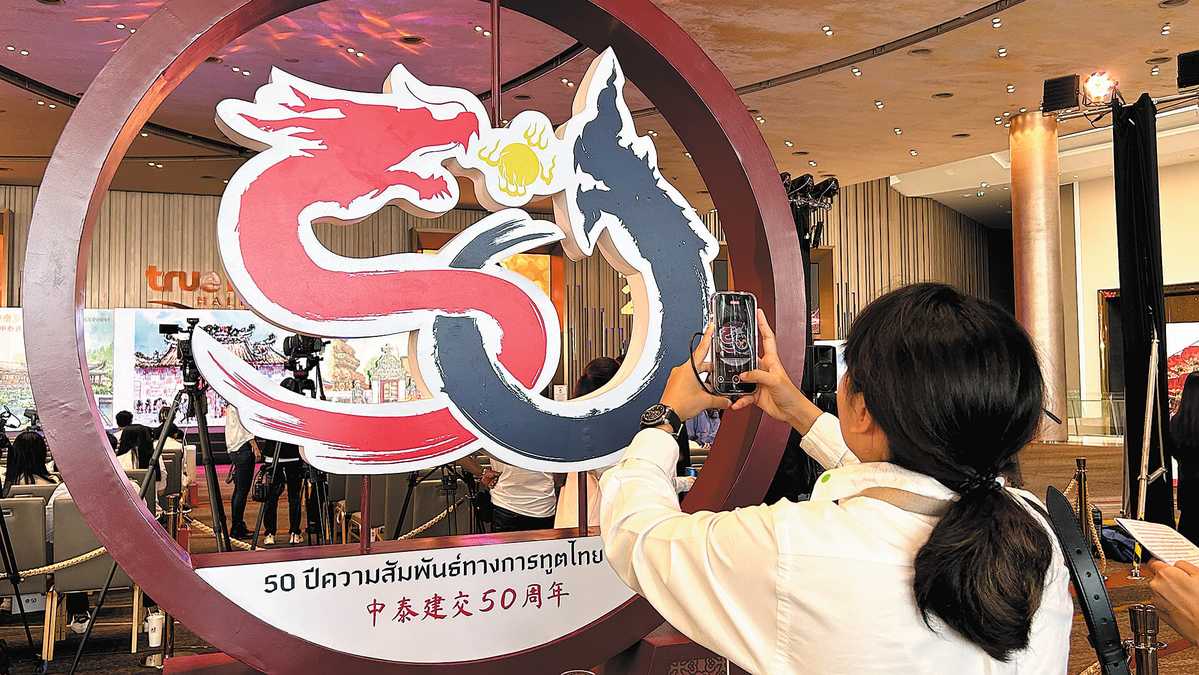
The long-standing friendship between Thailand and China will continue to strengthen through deepened cooperation and exchanges in various fields, benefiting regional growth, experts said at an academic conference in Bangkok over the weekend.
Marking the 50th anniversary of diplomatic relations between the two countries, Parnpree Bahiddha-Nukara, former Thai deputy prime minister and foreign minister, said bilateral ties have developed into a strategic partnership founded on mutual trust and common values.
Parnpree highlighted several major achievements in recent years, including the launch of a foreign ministerial dialogue mechanism and a mutual visa exemption agreement. He said China plays a crucial role in the development of Global South countries.
In a world facing turbulence and uncertainties, Thailand-China collaboration will contribute to regional peace and development, he said. "We should deepen cooperation in all fields — particularly eco-friendly projects and innovative industries — and further boost connectivity and people-to-people exchanges."
Supported by the Chinese embassy, the two-day conference was jointly organized by Chulalongkorn University and Thammasat University in Bangkok, bringing together scholars from both countries to share suggestions on future cooperation.
"The 50-year friendship between Thailand and China is standing as a new beginning for both and we hope the academic exchanges will inspire younger generations in both countries to learn more from each other," said Wilert Puriwat, president of Chulalongkorn University.
ALSO READ: China’s ‘ASEAN visa’ is more than a travel perk
Chaiyaporn Phayakhrut, an assistant professor of international relations at Thammasat University, said the two countries should jointly promote cultural industries and the innovative economy — areas gaining strong momentum among the youth.
Thailand is setting its national strategy to develop soft power, with culture and innovation playing an important role, she said. "Thailand and China share deep cultural connections while enjoying diverse forms of innovative economy. We should exchange ideas and learn from each other, further boosting the industry and benefiting our people."
Enhancing trust
Jia Qingguo, former dean of the School of International Studies at Peking University, said that while China and Thailand enjoy a longstanding friendship and partnership, challenges remain, such as misunderstandings stemming from a lack of communication and differing cultural backgrounds.
He urged the two sides to strengthen political mutual trust while promptly exchanging opinions on bilateral ties as well as international and regional issues of common concern. Jia also emphasized the need to deepen bilateral trade to reduce costs and focus more on new industries, such as artificial intelligence.
"Apart from joining hands to combat cross-border crimes, we should also work closely to safeguard national and regional security," he said. "In addition, there are great opportunities for media from both sides to make joint efforts on communication and fighting against fake news."
In his opening speech, Wu Zhiwu, charge d'affaires ad interim of the Chinese embassy in Thailand, said China's relations with its neighboring countries are at their best since modern times.
"Amid various risks and challenges, China and Thailand should further consolidate strategic mutual trust, firmly support each other and use the stability and certainty of bilateral relations to respond to the uncertainties in the external environment," he said.


